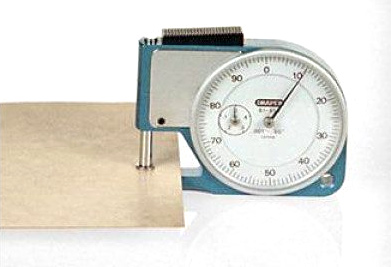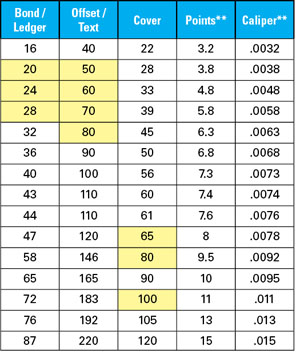Paper Characteristics
Weight / Thickness

Understanding paper weight and thickness can be difficult due to the archaic measurements / descriptions used in the paper industry. Generally paper is described by it’s weight and paper class. The difficulty comes about because each paper class uses a different sheet size to measure weight. This results in a system where 80# (# symbol is the same as lbs) text is radically different (lighter) than 80# cover.
To further confuse things, some papers, particularly cover papers, may be referred to by thickness (points). For example, 10 point C1S (coated 1 side) is a common reference.
Without getting into the gory details, following are the most common paper classes and the paper basis size that is used to determine weight. Weight is calculated by weighing 500 sheets of the basis paper:

The following table compares paper weights and characteristics for different paper classes. For example, 24# bond is equivalent to 60# offset and 33# cover.



